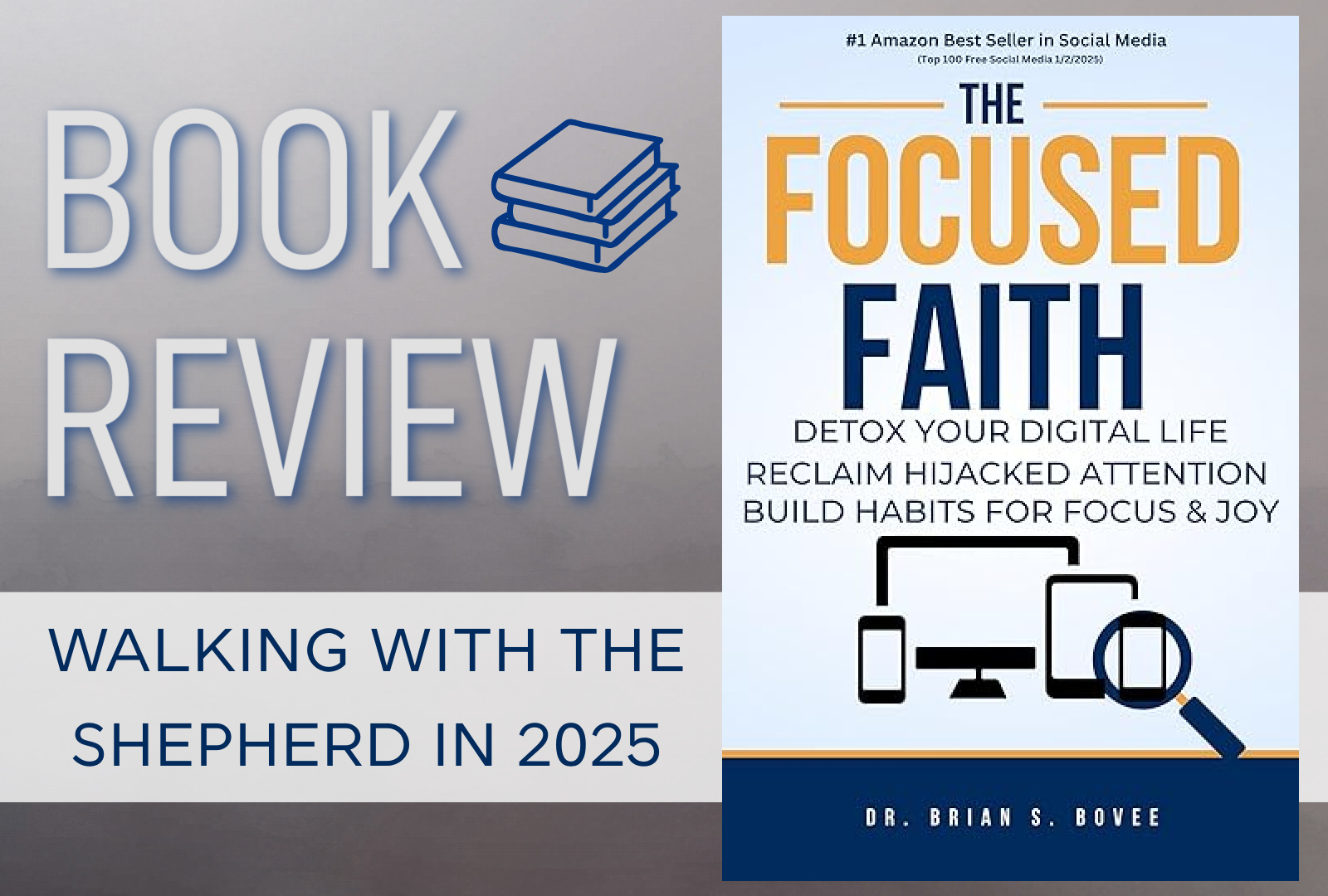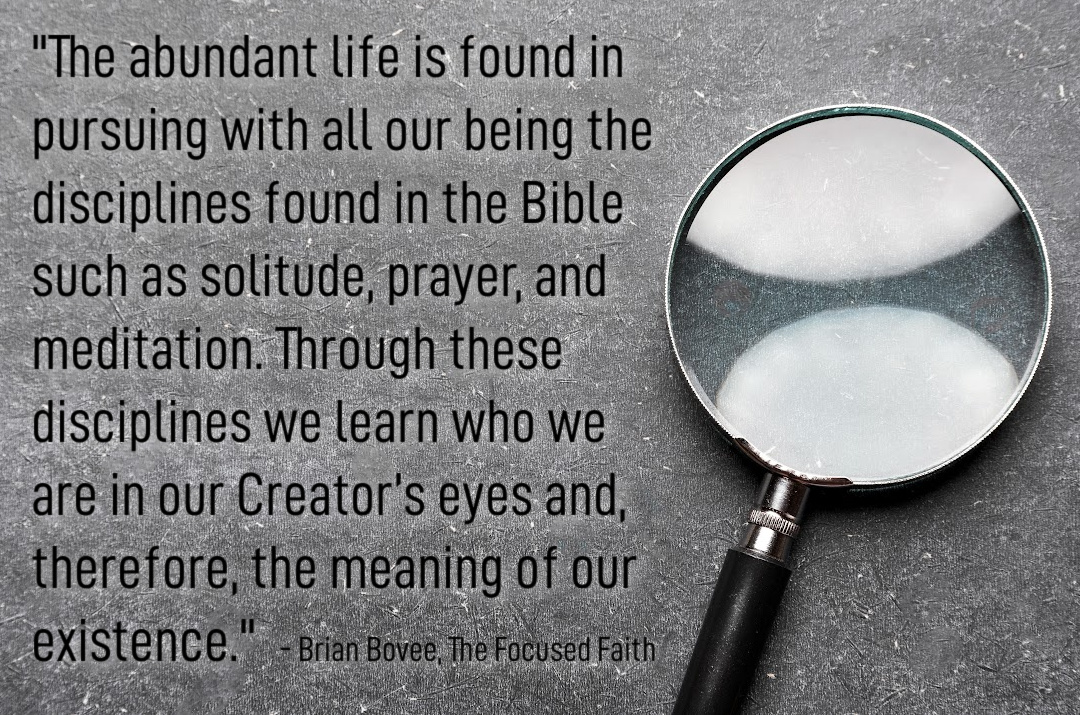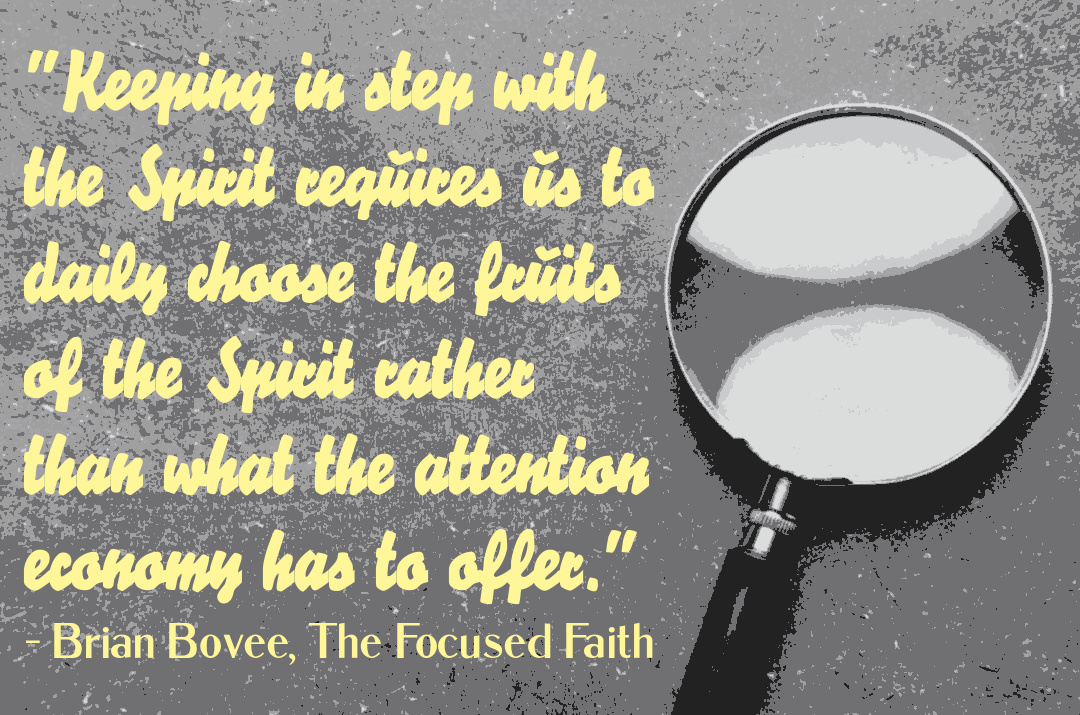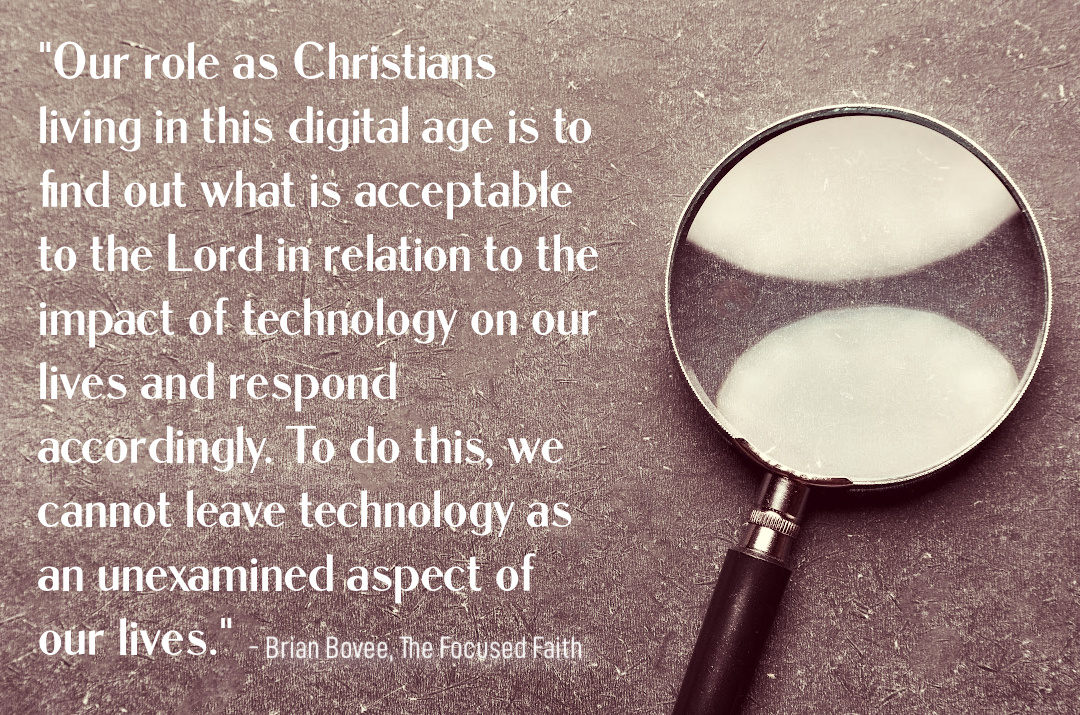2025 has been my year of intentionally spending time with my Shepherd and learning to discern His voice. There are many obstacles that prevent me from listening for (and following) the voice of God, but the single biggest culprit is indisputably my smartphone. I doubt that surprises you, because it is probably YOUR primary distraction as well. That’s not an accident: as Brian Bovee (a technology expert and professor at California Baptist University) notes in his book The Focused Faith, “millions of dollars and some of the brightest minds in the world are dedicated to capturing and maintaining your attention on your device.” But we don’t need to continue letting the attention economy steal our focus, and in The Focused Faith, Bovee offers a systematic guide to detoxing from the digital obsession and reclaiming focus, joy, and purpose through the pursuit of spiritual disciplines.

It’s evident that Bovee took his readers’ fractured attention spans into account when penning this book: the writing is engaging but straightforward and easy to follow, and each chapter concludes with a list of key points as well as questions for reflection. The book is also accompanied by a downloadable Application Guide with several additional checklists and further tools for applying strategies suggested within the book’s chapters. This book is meant to be utilized, not just read, and is a wonderful guide through what will likely be a rigorous journey towards reclaiming a focused faith.
Bovee begins with his stated thesis that “the abundant life is found in pursuing with all our being the disciplines found in the Bible such as solitude, prayer, and meditation. Through these disciplines we learn who we are in our Creator’s eyes and, therefore, the meaning of our existence. It is only then that we are empowered to reject the trinkets of the culture’s digital pleasures and confidently replace the time we previously used for the mindless pursuit of pleasure with tasks that create meaning in our life.” I’ve devoted quite a bit of time to studying both technology addiction AND spiritual disciplines, but Bovee’s utilitarian approach of embracing spiritual disciplines to reclaim focus (not the other way around) is unique.

Part One of The Focused Faith examines the attention economy and how it has contributed to our inability to focus. Bovee gets into the science and business behind technology addiction, and he points to the ways that Christians can choose the fruits of the spirit over the offerings of the attention economy (self-control over reckless indulgence, patience over impatience, and joy over comparison). He then delves into flow theory, explaining that flow contrasts sharply with the distraction-filled world as it focuses attention, leading to deep engagement and fulfillment. In what I found to be the most intriguing and helpful section of the book, Bovee walks us through the steps of identifying the activities that will put you into a state of flow.
Bovee concludes Part One with a chapter on the ways that we are shaped by our technology: it is not neutral, and our perceptions and actions are constantly being shaped by technology in ways we might not even realize. Bovee guides us toward a Biblical worldview of technology, leading us to examine ways that our tech use aligns or conflicts with our values. This is something I wish that more Christians—especially those in leadership—were considering, and I’m grateful for Bovee’s clear-eyed acknowledgment that “when our tools not only change our experience of God’s world but also distort it, they can become something more than tools—they become idols.”

Whereas Part One of the book is all about Offense (learning what the attention economy is and how to diminish our need for distraction), Part Two brings in the Defense: how to elevate our prayer, solitude, and deep reading in the attention economy. As I mentioned above, I’ve read a lot about spiritual disciplines and spent time cultivating them for myself, but this might be the first time I’ve studied them specifically as tools for combatting tech addiction. I have mixed thoughts on the backwards approach that seems to be prioritizing reclaimed focus over communion with God; both are achieved through the strategies that Bovee suggests, so perhaps the order is unimportant, but I would argue that our ultimate goal should be to pursue the heart of God. When we are walking closely with Him, He can use the practices of prayer, solitude, and study of His Word to reshape our desires, but it is the relationship that is our end goal, not the reshaping that will follow.
The book’s final section gives a detailed plan for detoxing from distraction. Bovee offers his take on why many detoxes fail, suggesting an alternative that involves getting intentional about how to fill up the time that was previously taken up with technology. Bovee also encourages readers to reintroduce technology “with friction” that will make it harder to fall back into unhealthy tech habits.

I wish that reading a book about a “challenge area” was the solution to every problem; it’s not, and my own fractured focus was not instantly healed as I read this book. But Brian Bovee has succeeded in providing me with an exceptional assortment of tools for purging distraction through more worthwhile spiritual pursuits. Whether we like it or not—whether we are aware of it or not—modern Christians are engaged in a ongoing battle for not just our attention but our souls. The Focused Faith is an excellent addition to our spiritual arsenal.
Ready for more book reviews? You don’t have long to wait: I will be reviewing the rest of my recent reads in a Quick Lit post this Thursday. Stay tuned!